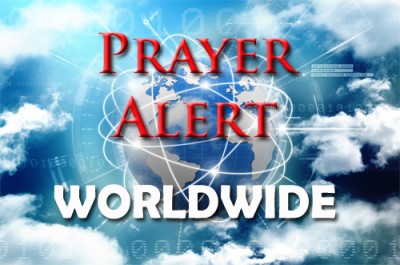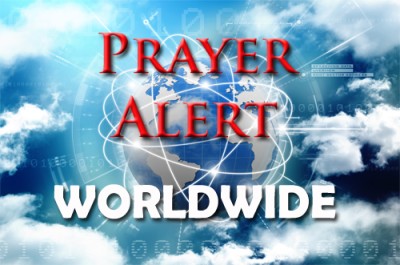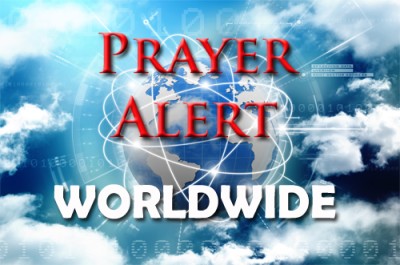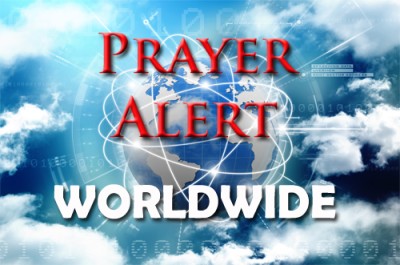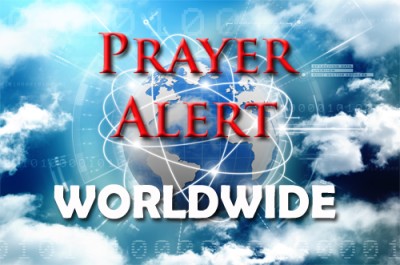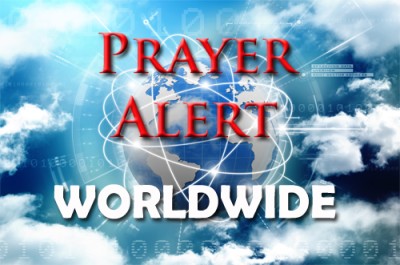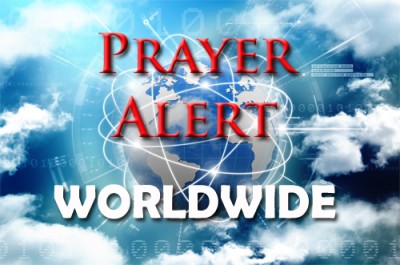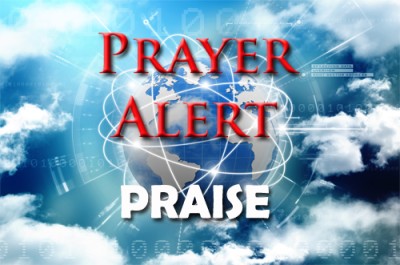Turkey: active remnant church
23 Feb 2023The death toll is tens of thousands. The devastation and trauma is palpable, after the 7.8-magnitude earthquake shook Turkey. Over several years, many foreign Christians have been expelled from Turkey. Most of those remaining are local Turkish believers, 0.5% of the population. Amid the suffering, Turkish Christians are helping one another and embracing Muslim neighbours with aid. In areas where rescue teams were slow to arrive, believers rushed in from other parts of Turkey to help. Their presence is opening doors to offer Gospel comfort. We pray for the grieving. We pray for the spiritually lost. Lord Jesus, break down deep-seated prejudices against Christianity. Move through your remnant church.
China: demonstrators disappear
23 Feb 2023As China declares victory over the pandemic, the landmark protests in November which spelled the end for zero-Covid rules have begun fading from memory. But as the country moves on, many who took part in the demonstrations are missing, taken by authorities in a quietly deepening crackdown on dissenters. Thousands rallied against restrictive Covid policies in White Paper protests, holding up blank white sheets in a rare show of criticism of the Communist Party and its leader Xi Jinping. Police made few arrests at the time. Now, months later, scores of those protesters are in police custody, say Chinese activists. International rights groups and foreign universities have called for their release. Activist groups have published lists naming the detainees from Beijing, Shanghai, Guangzhou, and Nanjing protests. Many prisoners are well-educated; some attended universities in the UK and America. They include writers, journalists, a musician, a teacher and a financial industry professional.
Turkey: third earthquake buries more people
23 Feb 2023Rescuers once again searched for people under rubble after a 6.4 magnitude earthquake and 5.8 aftershock struck near Antakya, where massive quakes had devastated communities two weeks earlier. Buildings weakened by previous tremors collapsed this time. The death toll is relatively low because the area was almost empty after being hit by previous quakes. 294 people were injured - 18 of them seriously. Pray for God to comfort survivors like Ali who was looking for the bodies of his family after the previous earthquakes when the latest tremors hit. He said, ‘We grabbed each other and right in front of us, the walls started to fall’. Pray for the 865,000 people living in tents, 23,500 in container homes, and the 376,000 in public guest houses and student dormitories. Meanwhile Turkey is widening investigations into building servicers violating safety standards. By 23 February 564 suspects were identified, 160 arrested, and many more were under investigation.
North Korea: food shortages
23 Feb 2023North Korea is teetering on the brink of famine. Their official newspaper urges economic self-reliance, arguing that relying on external aid to cope with the food situation would be like taking ‘poisoned candy’. A US thinktank said North Korea is reeling from floods, typhoons and global sanctions over its nuclear programme and is on the brink of famine. Food insecurity is at its ‘worst since the 1990s famine’, and food availability is likely below the bare minimum for human needs. Experts say the current food shortages, triggered by poor harvests amid extreme weather conditions, have been exacerbated by lockdowns and a sharp reduction in trade with China due to border closures during the pandemic. Pyongyang called for an ‘urgent’ meeting of the Workers’ Party on agriculture this month. It is rare for such a special meeting. They have also reduced daily food rations to soldiers for the first time since 2000.
Brazil: deadly storms
23 Feb 2023People having a pre-Lent holiday at San Sebastiao beach had two feet of torrential rain. Sao Paulo state’s floods also claimed lives on carnival weekend. TV and social media showed entire areas under water, hillside houses swept away by mud, flooded highways, cars destroyed by fallen trees and more. By 23 February dozens were missing, 48 had died and rescue crews were scrambling to provide necessities, but the logistics of reaching the isolated towns was creating difficulties. Not all aid has reached survivors. Criminals taking advantage of the chaos are looting trucks carrying donations. Pray for the 1,730 displaced people in churches, schools and kindergartens and the 1,810 left homeless, the injured, and those looking for the missing. Pray for those mourning the dead. Amid such devastation a two-year-old boy was rescued from a sea of mud, as was a woman giving birth. See
Saddleback Church in dispute over female pastor
23 Feb 2023America’s largest Protestant denomination is grappling with gender issues and politics. The recent Southern Baptist Convention expelled its largest and most prominent church, Saddleback Church in California, because it installed a woman pastor. Saddleback still operates as a church, and its members will not be overtly impacted. But Southern Baptist leadership’s ejection of such a high-profile member church underlines their struggles with gender, sexuality, abuse, politics and race, including criticisms from an energetic right flank that the group is drifting to the 'woke’ left. The convention also removed other churches over women holding certain leadership roles, and a Florida church over a sex abuse case. Saddleback was founded by pastor Rick Warren, who built a national profile thanks to the then innovative posture as ‘seeker-sensitive,’ attuned to those unfamiliar with, or wary of, traditional church experiences. He also wrote the best-selling book ‘The Purpose-Driven Life’.
Spurred on by the 2020 EndSars anti-police brutality protests that morphed into calls for good governance, millions of young people in Nigeria have registered as first-time voters for the elections on 25 February. The man many are backing for president, Peter Obi of the Labour Party, is not that young at 61. Nor is he really a new broom in Nigerian politics as he was previously the vice-presidential candidate for the main opposition party, People’s Democratic Party (PDP). But he is considered an outlier because of his accessibility, simplicity, and his record of prudence with public funds when he was a state governor. Under the watch of President Muhammadu Buhari, who is stepping down after two terms, young middle-class Nigerians have seen their finances battered by record levels of inflation. One in three of them cannot find a job, students have experienced incessant strikes by lecturers, and many of Nigeria's finest are desperate to leave the country. On top of this, widespread insecurity has seen armed groups kill more than 10,000 people and abduct more than 5,000 last year alone, according to the International Crisis Group. Mr Obi has been openly supported by Nigeria's huge evangelical Christian movement in the south, and can also rely on the votes of Christians who feel persecuted in the mainly Muslim north.
USA: a ‘surprising work of God’
16 Feb 2023‘The choir sang the final chorus, then something happened that defies description. Students didn’t leave, they continued worshipping. I teach theology across the street. When I heard about this I went to the chapel to see for myself. I found hundreds of students singing quietly, praising and praying earnestly for themselves, their neighbours and our world; repenting for sin and interceding for healing, wholeness, peace, and justice. Some were reading and reciting Scripture. Others were standing with arms raised, or clustered in small groups praying. Some were kneeling at the altar rail. Some were lying prostrate, others were talking together, their faces bright with joy. When I returned in the evening they were still worshipping. By Thursday midmorning hundreds were filling the chapel again. Then students began arriving from other universities. Asbury Chapel continues in waves of prayer, worship, and gut-wrenching public confession. It was a significant and spontaneous move of the Spirit. What a phenomena to witness. Come, Holy Spirit.’
